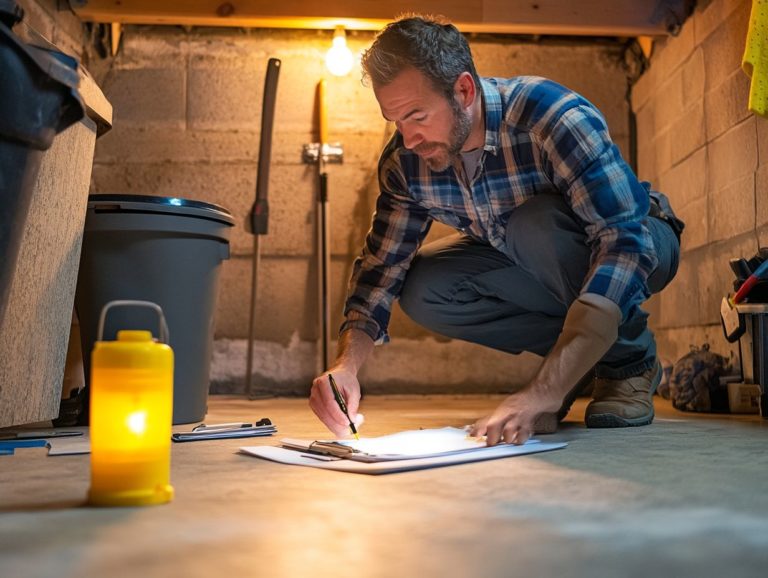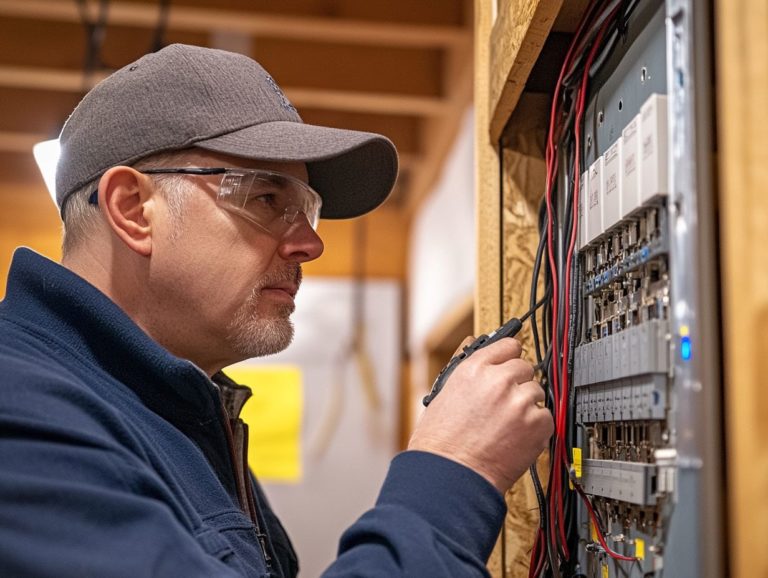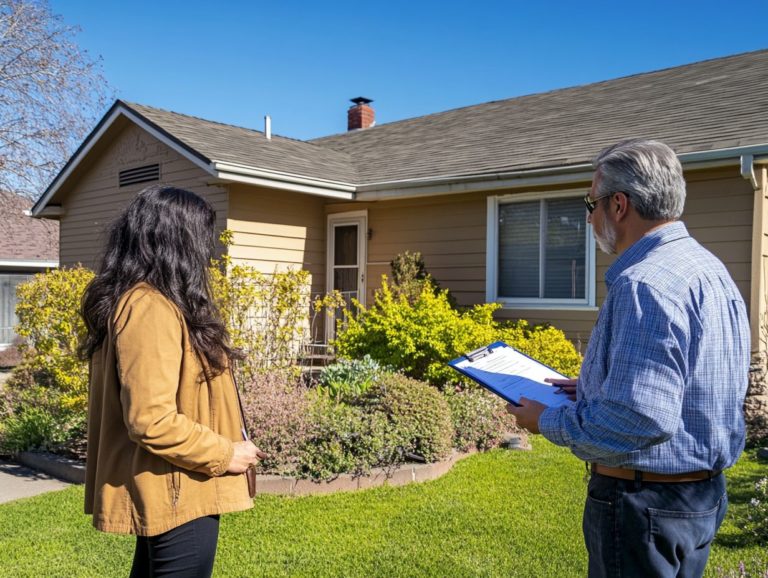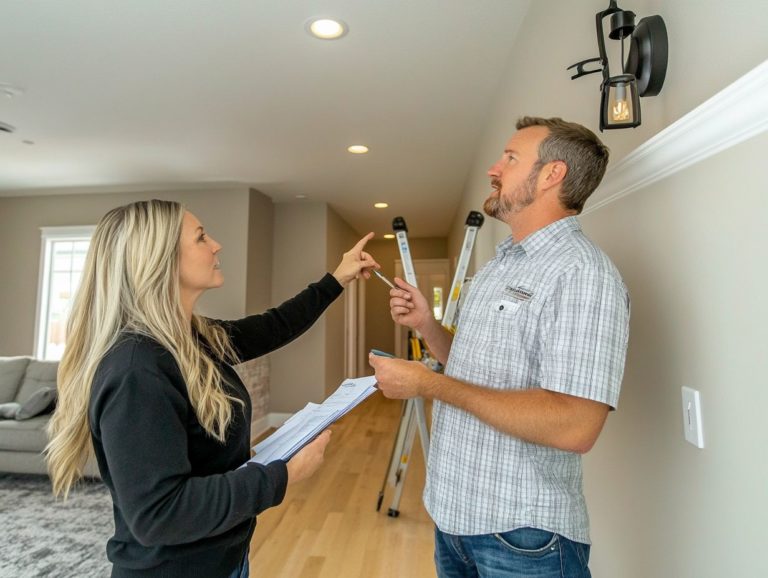The Importance of Home Inspections for Property Investors
When it comes to making savvy investments in real estate, grasping the intricacies of home inspections is your key to unlocking a successful investment!
A thorough inspection is absolutely vital. It s a critical step that can shield you from costly surprises in the future. This guide will delve into what home inspections involve, their significance in the investment process, the different types of inspections available, and how you can effectively prepare for one.
By the end, you ll be equipped with the knowledge to make informed decisions and select the right inspector, ensuring that your investments are both sound and secure.
Contents
- Key Takeaways:
- Understanding Home Inspections
- Types of Home Inspections
- The Home Inspection Process
- Benefits of Home Inspections for Property Investors
- Choosing a Home Inspector
- Frequently Asked Questions
- 1. What is the importance of home inspections for property investors?
- 2. What does a home inspection involve?
- 3. Are home inspections necessary for new properties?
- 4. Can a property investor do their own home inspection?
- 5. How can home inspections save property investors money?
- 6. How often should property investors get a home inspection?
Key Takeaways:
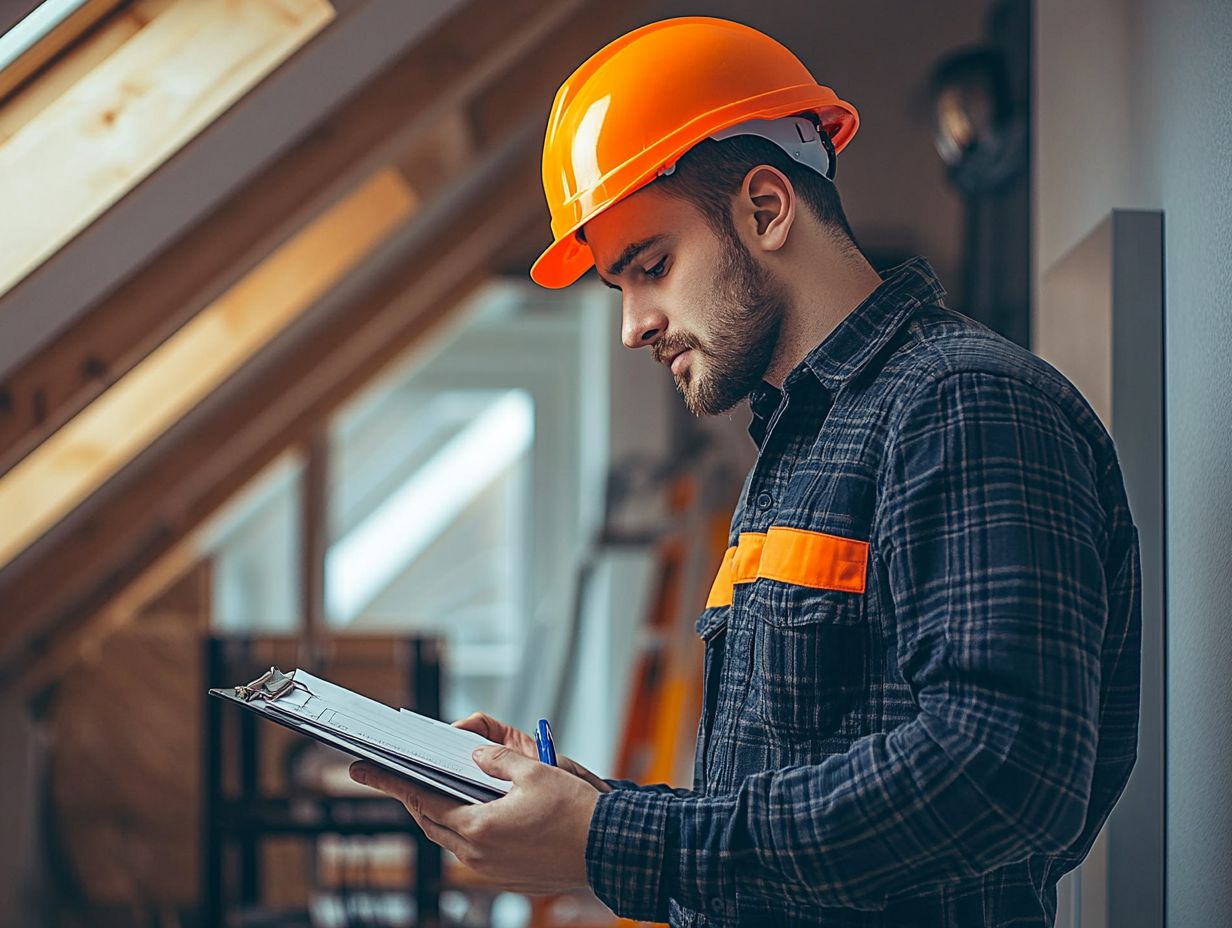
Home inspections are crucial for property investors to understand the condition of a property before making a purchase, highlighting the importance of home inspections for property investors.
There are various types of home inspections, including general and specialized, that can help investors uncover potential issues, highlighting the importance of thorough home inspections.
By hiring a qualified home inspector and reviewing the inspection report, investors can negotiate with sellers and make informed decisions about their investment, understanding the importance of home inspections in real estate transactions.
Understanding Home Inspections
Understanding home inspections is a crucial component of the home buying process, especially for investors like yourself who aim to secure a sound financial future through well-informed property transactions.
A comprehensive inspection can reveal essential insights about the property s condition, identifying potential safety hazards and structural issues that might otherwise remain hidden.
This knowledge helps you make informed decisions and strengthens your negotiation power, ensuring you re fully aware of repair costs and legal compliance needed to maintain the value and marketability of your investments.
What is a Home Inspection?
A home inspection is a thorough evaluation of a property’s condition, carried out by a qualified inspector who focuses on the strength and stability of the building, safety, and following local rules about building safety.
During this essential process, several key components are carefully examined to ensure the property meets safety and performance standards.
The inspector will scrutinize the plumbing systems for leaks and proper drainage while assessing the electrical systems for functionality and compliance with safety regulations. Foundation issues are also a primary concern; any cracks or shifting can signal serious structural problems that might compromise the overall stability of the home.
This comprehensive examination not only reveals potential hazards but also offers valuable insights into the longevity and reliability of the property’s various systems.
Why is it Important for Property Investors?
For you, as a property investor, conducting a home inspection is absolutely essential. It safeguards your financial security and maximizes potential investment returns by uncovering hidden issues before you make a purchase, highlighting the importance of home inspections in property sales.
By revealing structural problems, electrical deficiencies, or plumbing concerns, a comprehensive inspection provides crucial insights that empower you to negotiate confidently and effectively. This detailed overview arms you with the knowledge to address necessary repairs and allows you to make informed offers that truly reflect the property’s condition.
The ability to anticipate and mitigate future costs linked to unexpected repairs significantly boosts your overall profitability, making home inspections a critical part of your investment strategy.
Ultimately, these evaluations are vital for building a portfolio that flourishes in a competitive real estate landscape.
Types of Home Inspections
You ll find a range of home inspections tailored to meet your specific needs, from general home inspections to specialized evaluations.
Each type serves a vital purpose in assessing the condition and safety of your property, ensuring you make informed decisions.
General Home Inspection
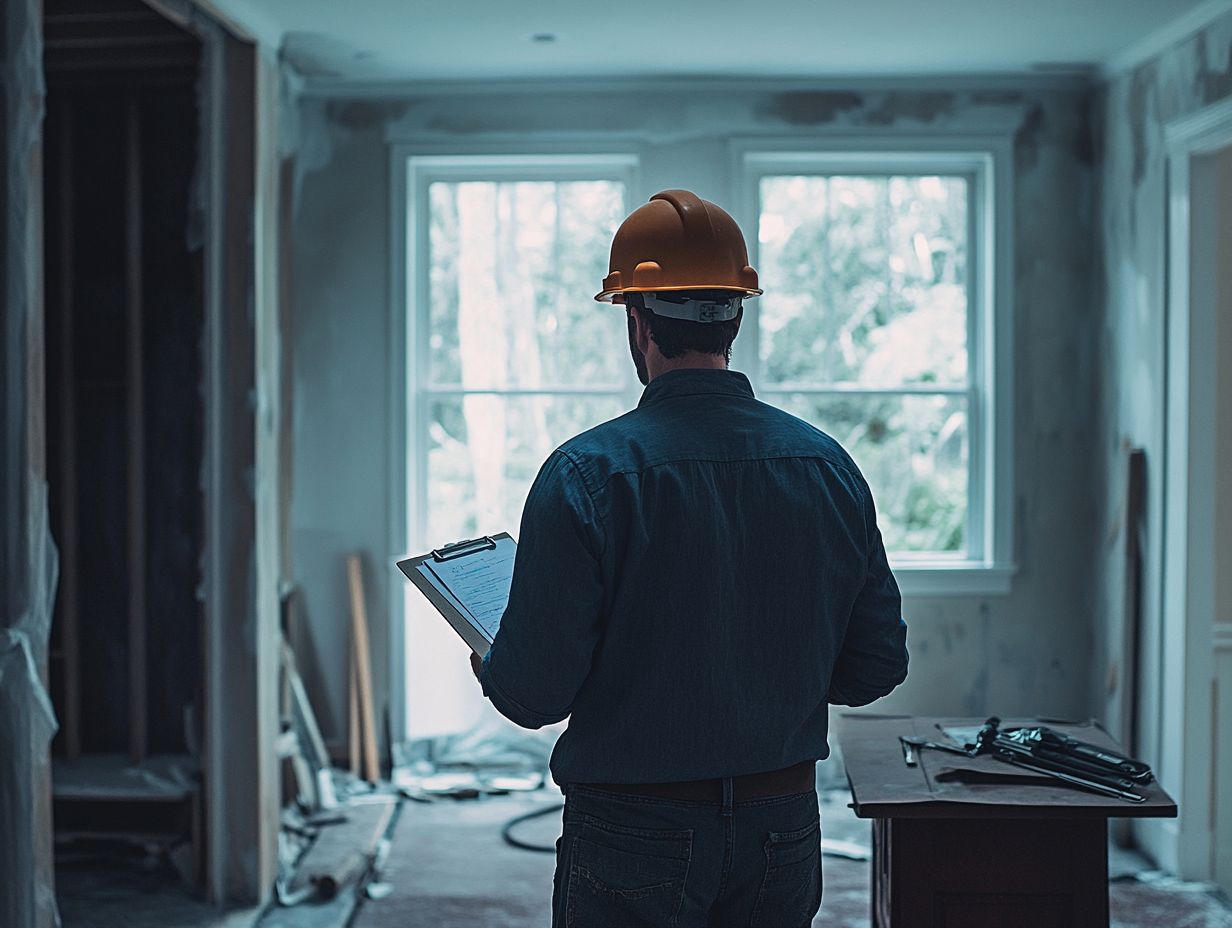
A general home inspection offers you a comprehensive overview of a property’s condition. It evaluates crucial elements such as structural integrity, safety concerns, and adherence to building standards.
During this thorough evaluation, several essential systems are checked, including the roof, electrical systems, plumbing, heating, ventilation, and air conditioning (HVAC) systems, and the foundation.
Inspectors don t just look for visible signs of damage or wear; they also uncover potential safety hazards, such as faulty wiring or gas leaks, that could jeopardize your well-being.
The inspection takes into account the condition of appliances, insulation, and drainage systems. This ensures that the home is not only habitable but also efficient.
Carefully checking these components helps you understand future maintenance needs and possible repair costs.
Specialized Inspections
Specialized inspections focus on specific aspects of a property, like plumbing systems, electrical systems, or foundation issues. They deliver detailed insights that a general inspection might easily miss.
These evaluations are crucial for homebuyers and property owners, especially for older buildings or those with repair histories. By concentrating on these areas, specialized inspections reveal hidden concerns that could lead to costly repairs if not addressed promptly.
When you notice signs of damage, such as water stains or flickering lights, enlisting a qualified inspector becomes essential. These professionals pinpoint repairs and provide peace of mind, ensuring you’re fully informed before making significant investments or decisions regarding your property.
The Home Inspection Process
The home inspection process is an essential chapter in your real estate journey, encompassing several stages from scheduling the inspection to receiving a comprehensive report.
This meticulous approach serves both buyers and sellers, fostering transparency about the property’s condition and paving the way for knowledge-based decision making.
What to Expect During an Inspection
During a home inspection, you can expect a careful examination of the property, covering essential systems, structural integrity, and the overall condition of the home.
The inspector will typically start by assessing the roof for any damages or leaks that could signal potential future issues. They then move on to the exterior walls, foundation, and drainage systems elements that are crucial in preventing water intrusion.
Once inside, the inspector evaluates the plumbing and electrical systems, noting any potential code violations or inefficiencies. They also check the heating and cooling systems to ensure everything is functioning properly.
Throughout this thorough process, the inspector employs a variety of tools and techniques, like moisture meters and thermal imaging, to create a complete picture of the home’s condition. You’ll also receive a detailed report of all findings, which can be an invaluable asset for negotiation and planning any necessary repairs.
How to Prepare for an Inspection
Preparing for a home inspection is essential for you, whether you’re buying or selling. It lays the groundwork for a thorough evaluation of the property’s condition and ensures adherence to safety regulations.
As a buyer, it’s vital for you to watch for potential red flags that could impact your investment think signs of water damage or outdated electrical systems.
For sellers, focus on providing clear access to key areas like the attic, basement, and crawl spaces, which inspectors usually check.
Both you and the other party stand to gain from addressing minor repairs ahead of time, as this can significantly influence the assessment’s outcome. Taking the initiative to prepare showcases your commitment to transparency and fosters a smoother transaction process overall.
Benefits of Home Inspections for Property Investors
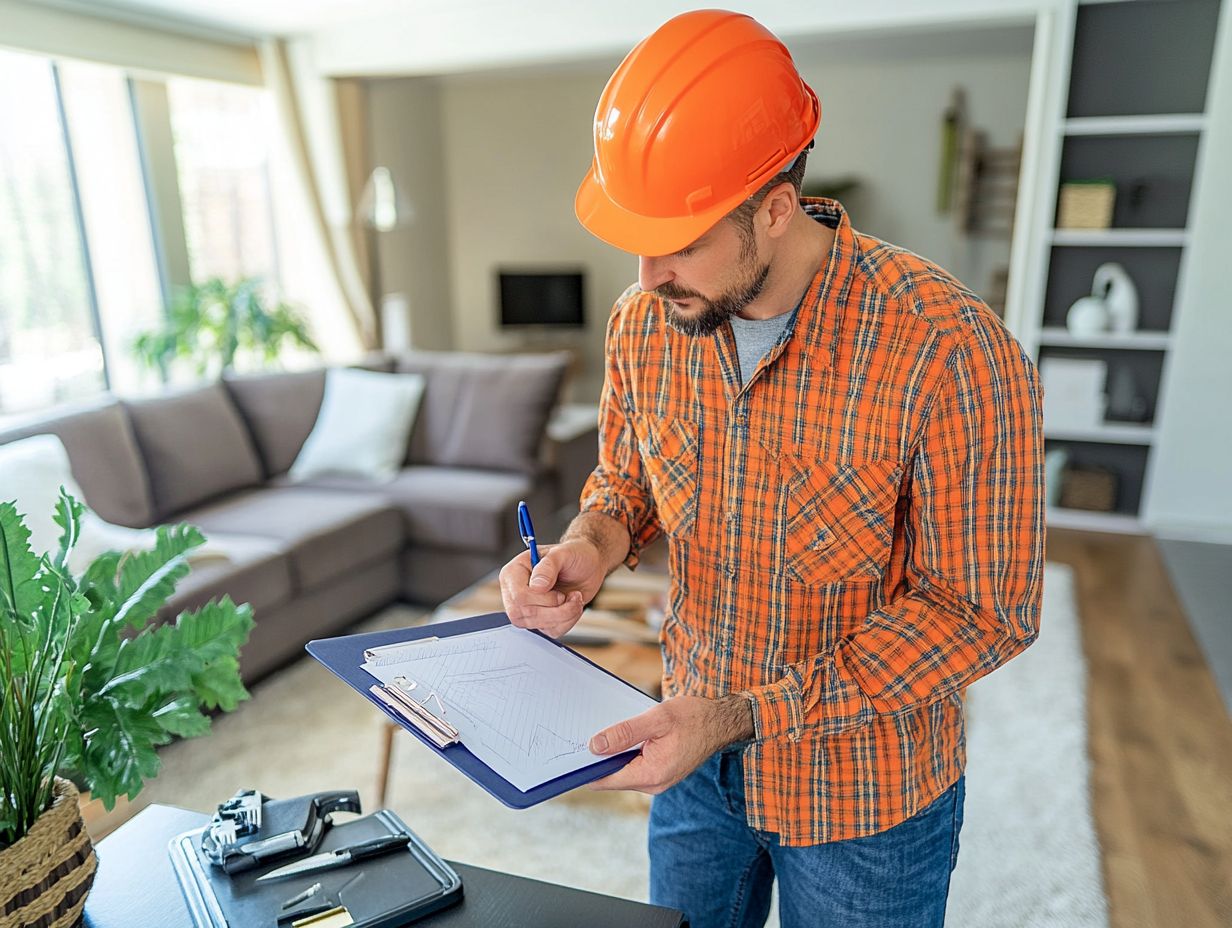
Home inspections offer incredible advantages for property investors! They enable you to identify issues early, providing you with crucial leverage during negotiations. Understanding the importance of home inspections for real estate transactions can make a significant difference in your investment strategy.
This foresight ultimately translates into more favorable investment outcomes, enhancing your overall success in the property market. Act now to identify issues early and gain an edge in negotiations!
Identifying Potential Issues
Home inspections are crucial for you as they help identify potential issues, including safety hazards, structural problems, and repair costs. Understanding the importance of home inspections in real estate deals gives you a clear understanding of what you might be facing as a property investor.
These assessments also reveal hidden defects, such as faulty wiring, plumbing leaks, or signs of pest infestations, which may not be immediately obvious.
For example, if you discover a roof that needs immediate repair, it could lead to significant expenses down the line, dramatically affecting your overall investment budget. Safety hazards like mold or outdated electrical systems not only threaten future occupants but can also influence your insurance premiums and resale value.
Therefore, thorough inspections offer invaluable insights, enabling you to make informed decisions while accurately budgeting for necessary repairs and improvements.
Negotiating with Sellers
The insights you gain from a home inspection can significantly enhance your negotiation position with sellers, allowing you to tackle repair costs and potential issues before sealing the deal.
By leveraging specific findings from the inspection report, you can confidently present your case, emphasizing necessary repairs that could impact the property’s value. Utilizing evidence from the report strengthens your argument and fosters a collaborative atmosphere during negotiations.
Effective negotiation strategies include:
- Requesting sellers to cover a portion of the repair costs
- Offering a lower purchase price that reflects the investment needed to address identified issues
This proactive approach showcases your thorough diligence and positions you as a knowledgeable and serious contender in the negotiation process.
Choosing a Home Inspector
Choosing the right home inspector can make a world of difference in your investment journey! Their qualifications and experience significantly impact the quality of the inspection process and the valuable insights you gain from it.
Qualifications and Experience to Look For
When selecting a home inspector, you should prioritize qualifications and experience, as these qualities directly influence the depth and accuracy of the inspection process.
A well-qualified home inspector typically holds relevant certifications from recognized organizations, such as the American Society of Home Inspectors (ASHI) or the International Association of Certified Home Inspectors (InterNACHI). Having a background in construction or a related field significantly enhances their ability to identify potential issues.
It s also wise to consider inspectors who have completed extensive training programs and possess a solid understanding of building codes rules that ensure buildings are safe and up to standard and safety regulations, as well as material properties. Experience is crucial, too; look for inspectors who have conducted thorough inspections across a variety of properties, from older homes to new constructions.
This breadth of experience allows them to adapt their approach based on the unique intricacies of each case.
Questions to Ask During the Selection Process

Asking the right questions during the selection process of a home inspector is crucial for property investors who want to ensure they select someone capable of delivering a comprehensive and insightful inspection.
It s essential to dig into the inspector s methodology, including the tools and techniques they use to evaluate various aspects of the property, like the strength and stability of the property, plumbing systems, and electrical wiring.
You should also inquire about the inspector s years of experience in the field and request references from previous clients to assess satisfaction and performance.
Understanding any specific areas of expertise such as familiarity with local building codes or specialization in older homes can also prove immensely beneficial. These considerations will ultimately lead to a more informed decision and greater peace of mind for you as a prospective buyer.
Frequently Asked Questions
1. What is the importance of home inspections for property investors?
Home inspections are crucial for property investors as they provide a comprehensive evaluation of a property’s condition. Understanding the importance of home inspections in real estate helps investors make informed decisions about potential investments and avoid costly surprises in the future.
2. What does a home inspection involve?
A home inspection involves a professional inspector examining the parts of a property. This includes the foundation, roof, plumbing, and electrical systems.
3. Are home inspections necessary for new properties?
Yes, home inspections are crucial even for new properties. They may look flawless but can hide issues that only a professional can spot.
Getting an inspection gives you peace of mind before making a large investment.
4. Can a property investor do their own home inspection?
Some property investors may know about construction, but hiring a professional home inspector is always best. They have the right tools and training to give a thorough and unbiased assessment, highlighting the importance of pre-purchase home inspections.
5. How can home inspections save property investors money?
Home inspections save money by identifying major issues that need costly repairs. They can also help you negotiate a better price or ask for repairs based on the findings.
In this way, they prevent unexpected costs in the future.
6. How often should property investors get a home inspection?
Get a home inspection before purchasing and regularly throughout ownership. This practice helps catch maintenance needs early and keeps your property in great shape.

